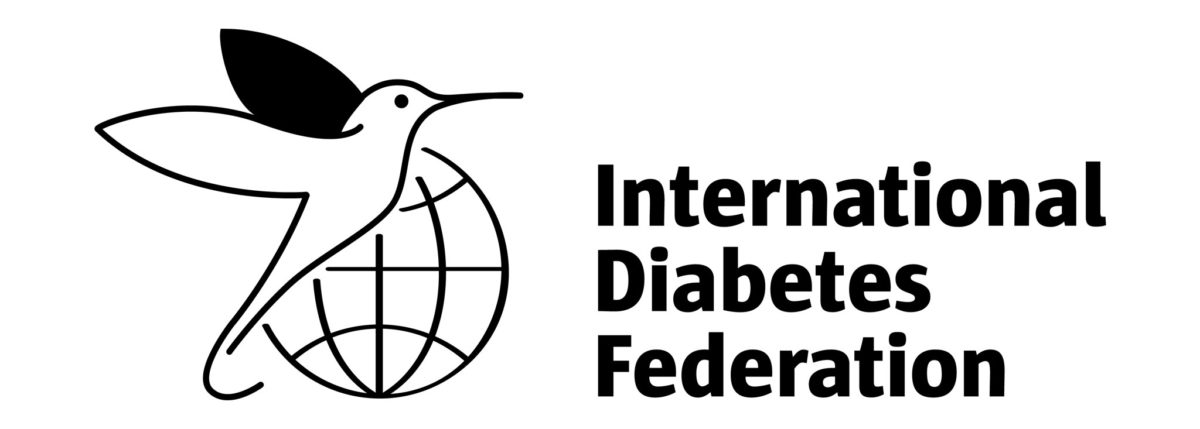The International Diabetes Federation and Its Vision
The International Diabetes Federation (IDF) has one vision—to live in a world without diabetes.
IDF is a federation of 200+ national diabetes associations, including the American Diabetes Association and the American Association of Diabetes Educators. It aims to support and strengthen its membership by promoting diabetes care and prevention through the development and dissemination of high-quality, evidence-based information and resources for health professionals, people with diabetes and policy-makers. Any national or international association that promotes and addresses diabetes related issues may apply for membership of IDF. IDF spans seven regions and has a pulse of key issues in each region:
- Africa (AFR)
- Europe (EUR)
- Middle East and North Africa (MENA)
- North America and Caribbean (NAC)
- South and Central America (SACA)
- South-East Asia (SEA)
- Western Pacific (WP
165 countries, and 235 total members.
IDF strives to promote diabetes awareness in a myriad of ways through advocacy initiatives on both local and global levels. Their main focus areas include:
- Health professional education
- Care & prevention
- Epidemiology & Research
- Humanitarian support
IDF’s most noteworthy initiatives include the IDF Diabetes Atlas, World Diabetes Day (last year’s theme being “Eyes on Diabetes,” a campaign promoting the importance of early diagnosis and treatment of type 1 and type 2 diabetes), the IDF Congress (the next edition will be held in Abu Dhabi in December 2017), Life for a Child (which focuses on saving the lives of children with diabetes in developing countries) and the Young Leaders in Diabetes programme.
Beyond Type 1 sat down for a chat with Lorenzo Piemonte, IDF communications manager, to hear more about how IDF is taking action on diabetes and bringing together the diabetes community.
BT1: What has been IDF’s experience with regard to government access and funding?
Lorenzo: IDF believes that all people with diabetes should have access to essential diabetes medicines and supplies. We are able to raise awareness of barriers to access that currently exist in many parts of the world by advocating to influence policy at both the global and member-state level. A recent example is the report of our Global Survey on Access to Essential Diabetes Medicines and Supplies that we launched at the World Health Assembly in Geneva and promoted the key findings during the meeting of G7 leaders in Italy. At the local level, our Life for a Child programme helps provide much-needed diabetes care to a particularly vulnerable group—children and youth—and strengthen the capacity of local governments to provide that care.
Through World Diabetes Day (marked every year on 14 November), we are able to mobilize the global diabetes community through our members to place diabetes firmly in the public spotlight. Officially recognized by the United Nations and led by IDF, the campaign aims to be the global driver to promote the importance of taking coordinated and concerted actions to confront diabetes as a critical global health issue. Our membership in over 160 countries actively engages in the day, uniting around the blue circle, the global symbol for diabetes awareness. In 2016, World Diabetes Day focused on the importance of screening, early diagnosis and treatment to prevent type 2 diabetes and serious complications of diabetes such as blindness. Our focus this year is on the disproportionate impact that diabetes has on women, in terms of access to care and education, discrimination and the threat it poses to the health of mother and child.
Education is one of the cornerstones of IDF’s work. We believe that education is a critically important, fundamental and integral component of diabetes care that should be available and accessible to everyone. Through our various education initiatives, we aim to support the development of health professionals so they are equipped to deliver high quality care to people with diabetes and those at risk. Building on our long track record of developing evidence-based educational resources, we recently launched the IDF School of Diabetes to deliver high quality diabetes education for health professionals, people with diabetes and caregivers worldwide.
BT1: What would you say is your biggest challenge?
Lorenzo: One challenge is communicating effectively and accurately about diabetes as there are still many misconceptions about the disease that are widely circulated and which can have a negative impact for a person with diabetes, in terms of the way that they are viewed and treated by other members of society. Diabetes is a complex disease that is often oversimplified, for example in the media, so one of our aims is to ensure that all the aspects of diabetes are communicated accurately and correctly.
Diabetes is a huge and growing problem all over the world. Worryingly, the epidemic shows no signs of relenting with the number of people living with diabetes expected to reach 642 million by 2040. In view of these alarming statistics, it is clear that current policies are not doing enough to tackle the problem effectively. Simple and cost-effective solutions to tackle the rising epidemic, particularly type 2 diabetes which is largely preventable, exist but require concerted effort and commitment from a broad range of stakeholders to change the current landscape. Through much of our work, IDF aims to close the gap that currently exists between evidence, policy and practice.
This also relates to tackling the barriers to access to diabetes care that exist in many parts of the world and which underpins much of the current advocacy work of IDF. It is a sad fact that nearly 100 years after its discovery by Frederick Banting and Charles H. Best, insulin is still not available on an uninterrupted basis in many parts of the world, resulting in severe illness and death. Much of this could be prevented with proper access to medicines and supplies.
 Learn more about Access issues across the globe and how you can contribute.
Learn more about Access issues across the globe and how you can contribute.





